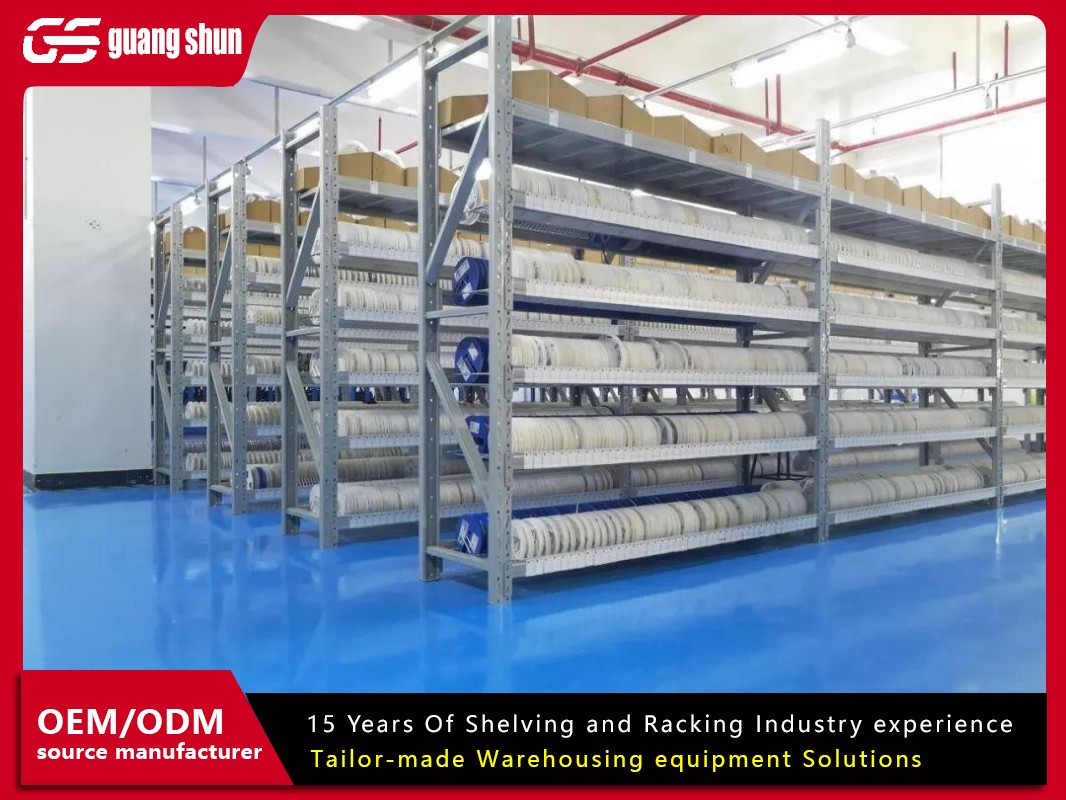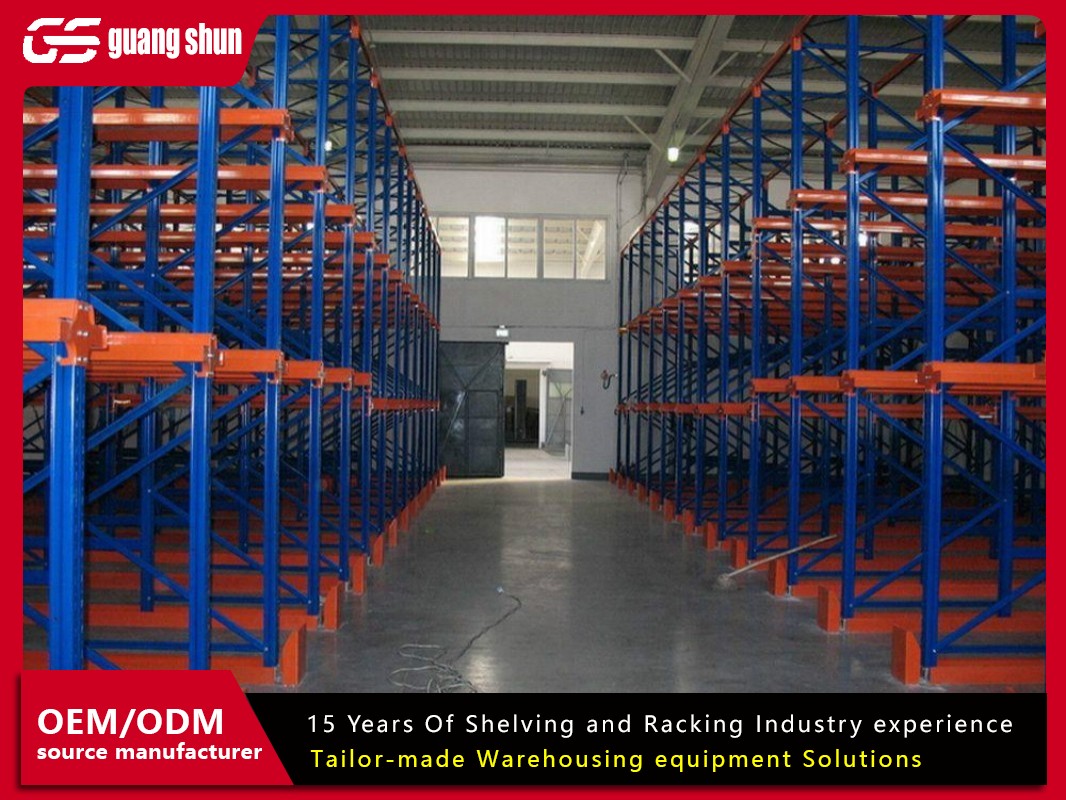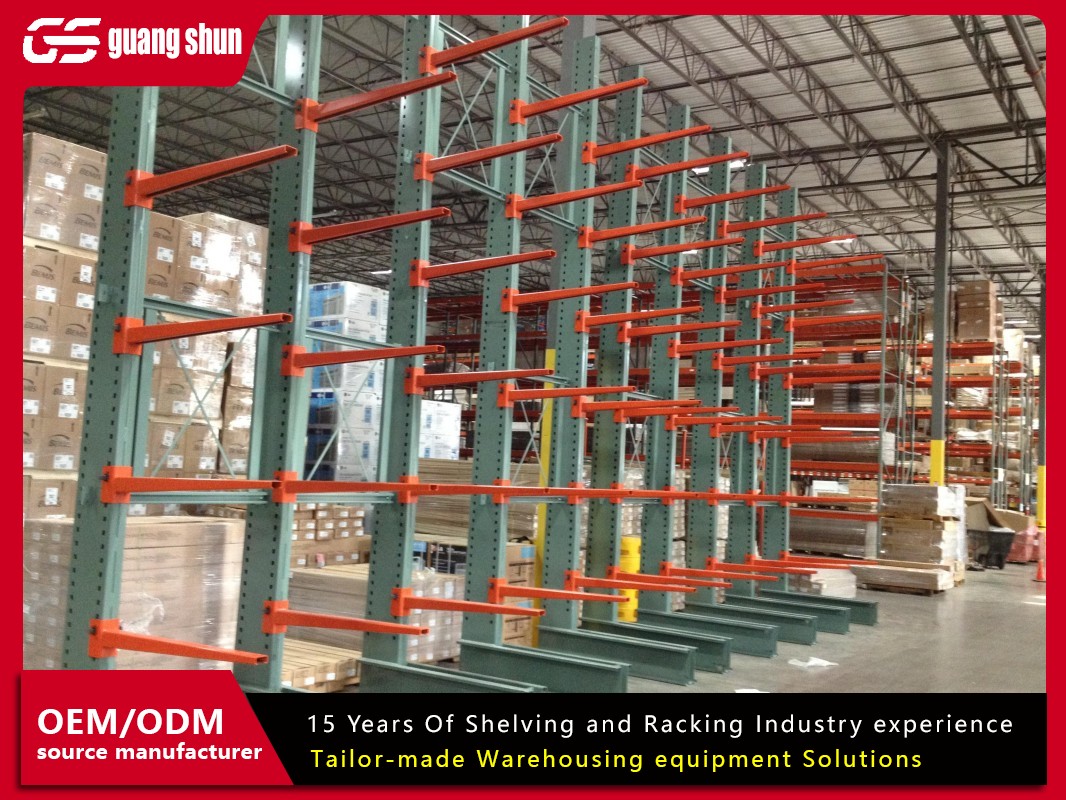In the relentless pursuit of warehouse optimization, maximizing vertical space and ensuring efficient material handling are non-negotiable. At the heart of this endeavor lies a critical piece of infrastructure: estanterías paletización, or pallet racking systems. These engineered structures are the backbone of modern warehousing and distribution, enabling the safe, organized, and high-density storage of goods on pallets. Understanding the intricacies of estanterías paletización is essential for any operation looking to improve throughput, reduce costs, and enhance safety. This comprehensive guide delves into the world of pallet racking, exploring its types, benefits, components, selection criteria, and best practices.
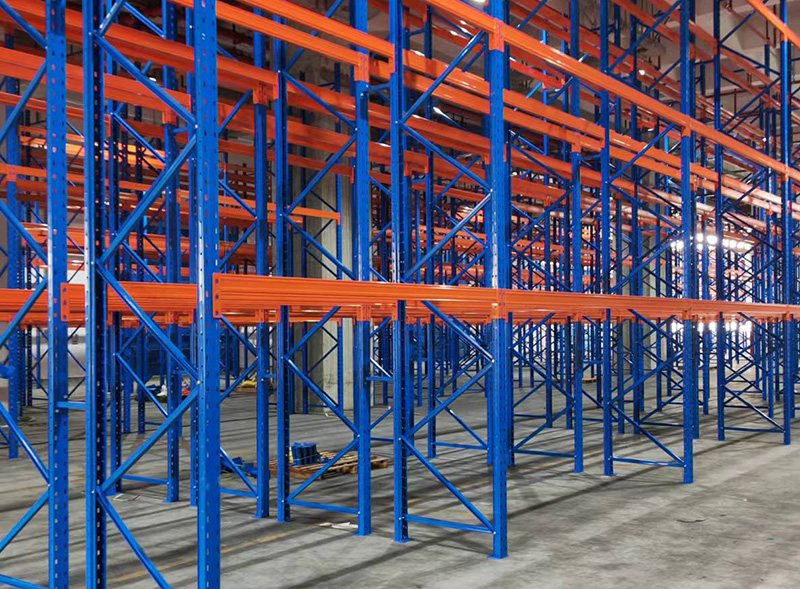
What Are Estanterías Paletización (Pallet Racking Systems)?
Estanterías paletización are specialized storage structures designed to hold unit loads, typically palletized goods, in an organized and accessible manner. Unlike simple shelving, they are engineered to handle significant weights and are constructed from high-strength steel. The fundamental purpose of pallet racking is to utilize the cubic space of a warehouse efficiently, stacking pallets vertically in multiple tiers while providing direct access to each pallet location (in most configurations). Key characteristics include:
Structural Integrity: Designed to meet rigorous load capacity and seismic standards.
Accessibility: Configurations allow forklifts or other material handling equipment to place and retrieve pallets.
Modularity: Systems are built from standardized components (uprights, beams, wire decks, etc.) allowing for flexible layout design and future expansion.
Safety Features: Incorporate design elements and accessories (like column protectors, rack guards, and safety pins) to minimize collision damage and enhance stability.
The core components of any pallet racking system include vertical frames (uprights), horizontal load beams, pallet support beams or wire decks, and necessary safety accessories. Proper installation, according to manufacturer specifications and local regulations, is paramount.
Key Types of Estanterías Paletización
Selecting the right type of pallet racking is crucial and depends heavily on your inventory profile, SKU count, turnover rates (FIFO vs. LIFO), and budget. Here are the most common configurations:
Selective Pallet Racking: The most ubiquitous and versatile type of estanterías paletización. It allows direct access to every single pallet location. Ideal for warehouses with a large variety of SKUs requiring frequent access to any pallet at any time. Offers excellent inventory rotation flexibility (FIFO, LIFO, or mixed).
Drive-In / Drive-Through Racking: Designed for high-density storage of homogeneous products with lower SKU counts and good turnover. Forklifts drive directly into the rack structure to place or retrieve pallets on rails. Drive-In is typically LIFO (last-in, first-out) accessed from one side, while Drive-Through allows FIFO (first-in, first-out) access from both ends. Maximizes cube utilization but sacrifices some selectivity.
Push-Back Racking: A dynamic LIFO system offering higher density than selective racking while maintaining better selectivity than drive-in. Pallets are stored on nested carts on slightly inclined rails. When a new pallet is loaded, it pushes the existing pallets back. Retrieval operates in reverse – removing the front pallet allows the next one to roll forward. Ideal for medium-to-high-density needs with multiple SKUs per lane and moderate turnover.
Pallet Flow Racking: A high-density, high-throughput FIFO system utilizing gravity. Pallets are loaded from one end (higher elevation) on wheeled or skatewheel conveyors set at a decline. Gravity moves pallets to the pick face at the lower end. Excellent for high-volume operations with date-sensitive or perishable goods requiring strict FIFO rotation.
Mobile Pallet Racking (Mobile Shelving): Entire rows of estanterías paletización are mounted on motorized bases that move laterally on rails embedded in the floor. Only one access aisle is required for multiple rows. Aisles open electronically as needed. Provides extremely high-density storage (close to 100% floor space utilization) for lower-turnover inventory or archival storage, but retrieval times can be longer.
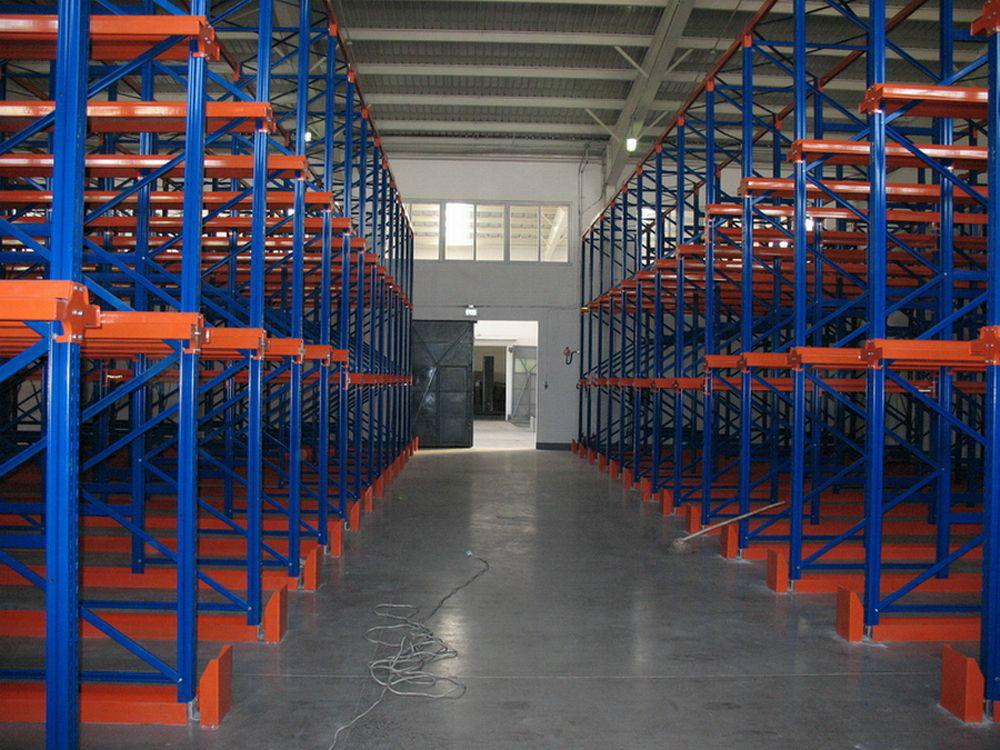
The Critical Role of Safety in Pallet Racking Systems
Safety is paramount when dealing with estanterías paletización. These structures hold immense weight at height, and failure can be catastrophic. Key safety considerations include:
Proper Design & Engineering: Systems must be designed by qualified engineers considering actual pallet loads, seismic activity, building structure, and local codes (like OSHA 1910.176(b) in the US or equivalent internationally). Never exceed stated load capacities.
Professional Installation: Installation must strictly adhere to manufacturer specifications using certified installers. This ensures correct anchoring, beam locking, and overall structural integrity.
Regular Inspections: Implement a formal, documented inspection program:
Daily/Operator Checks: Forklift operators should visually inspect areas they work in for obvious damage (bent uprights, dislodged beams, leaning frames).
Regular Formal Inspections: Conducted quarterly or semi-annually by trained personnel using a detailed checklist.
Engineered Inspections: Performed annually or after any significant impact by a qualified rack safety inspector or engineer.
Damage Protocol: Establish clear procedures for reporting damage immediately. Damaged components (especially uprights and beams) must be unloaded and replaced promptly. Never attempt field repairs without manufacturer approval.
Forklift Operator Training: Comprehensive training on safe maneuvering within the pallet racking environment is critical to prevent collisions.
Use of Safety Accessories: Column protectors, rack guards, end-of-aisle protectors, safety pins, and beam safety locks are essential investments to mitigate impact damage and enhance stability.
How to Choose the Right Estanterías Paletización for Your Operation
Selecting the optimal pallet racking system requires careful analysis. Consider these key factors:
Inventory Characteristics: SKU count, pallet dimensions & weight, homogeneity of products, turnover velocity (FIFO/LIFO requirements).
Warehouse Specifications: Available building height, floor condition, column spacing, door locations, sprinkler systems.
Material Handling Equipment (MHE): The type and capabilities of your forklifts (reach height, turning radius, load capacity) dictate aisle width and overall system compatibility. Narrow Aisle (NA) or Very Narrow Aisle (VNA) trucks require specific estanterías paletización configurations.
Budget & ROI: Consider not just the initial purchase and installation cost, but also long-term operational savings (labor, space efficiency, reduced damage) and potential future expansion needs. Calculate the ROI based on space savings and efficiency gains.
Scalability & Flexibility: Will your storage needs grow or change? Modular estanterías paletización offer easier reconfiguration and expansion than highly specialized systems.
Vendor Selection: Partner with reputable suppliers known for quality manufacturing, adherence to standards (like RMI in North America), engineering support, and reliable installation/service.
Maximizing Efficiency and ROI with Your Pallet Racking
Properly implemented estanterías paletización deliver significant returns:
Vertical Space Utilization: Dramatically increase storage capacity within the same footprint.
Improved Accessibility & Selectivity: Faster pallet put-away and retrieval times, reducing labor costs and order cycle times (especially with selective racking).
Enhanced Inventory Control: Clear organization facilitates better inventory accuracy and rotation (FIFO/LIFO).
Reduced Product Damage: Properly supported and accessible pallets minimize handling damage.
Increased Safety: A well-organized, stable racking system reduces accidents.
Scalability: Systems can be reconfigured or expanded relatively easily as needs evolve.
To maximize ROI:
Optimize Layout Design: Use warehouse design software or consult experts to maximize storage positions and minimize travel distances. Consider slotting strategies (placing fast-moving items in easily accessible locations).
Implement Warehouse Management Systems (WMS): Integrate with your pallet racking for optimized put-away, picking, and inventory tracking.
Regular Maintenance & Housekeeping: Keep aisles clear, ensure lighting is adequate, and promptly address any damage or wear.
Employee Training: Continuously train staff on safe operating procedures within the racking environment.
Maintenance and Longevity of Estanterías Paletización
Like any critical infrastructure, estanterías paletización require ongoing care to ensure safety and longevity:
Proactive Inspection Regime: As outlined in the safety section, consistent inspections are the first line of defense.
Immediate Damage Repair: Never delay repairing damaged components. Unload affected bays immediately and replace damaged parts with manufacturer-approved components.
Preventative Measures: Enforce speed limits for MHE, use safety barriers, and ensure operators are vigilant.
Load Management: Strictly enforce adherence to designated load capacities and even weight distribution on beams. Avoid point loading.
Environmental Considerations: Protect racking from excessive moisture (corrosion) if applicable. Ensure sprinkler systems are maintained.
Component Replacement: Beams and uprights can be replaced individually. Have a plan for sourcing spare parts from your supplier.
System Reconfiguration: When modifying the layout, ensure it's re-engineered if load distributions or heights change significantly.
With proper care, maintenance, and adherence to safety protocols, high-quality pallet racking systems can provide decades of reliable service.
Estanterías paletización are far more than just metal frameworks; they are the strategic foundation upon which efficient, safe, and profitable warehousing operations are built. Choosing the right type of pallet racking – be it versatile selective racking, high-density drive-in or push-back, or throughput-optimized pallet flow – requires a deep understanding of your specific operational needs, inventory profile, and material handling capabilities. Prioritizing safety through rigorous engineering, professional installation, comprehensive inspections, and robust operator training is non-negotiable. By carefully selecting, properly maintaining, and strategically utilizing your pallet racking system, you unlock significant benefits: maximized storage density, streamlined workflows, enhanced inventory control, reduced product damage, and a safer working environment. Investing intelligently in estanterías paletización is an investment in the long-term competitiveness and success of your logistics operation.



